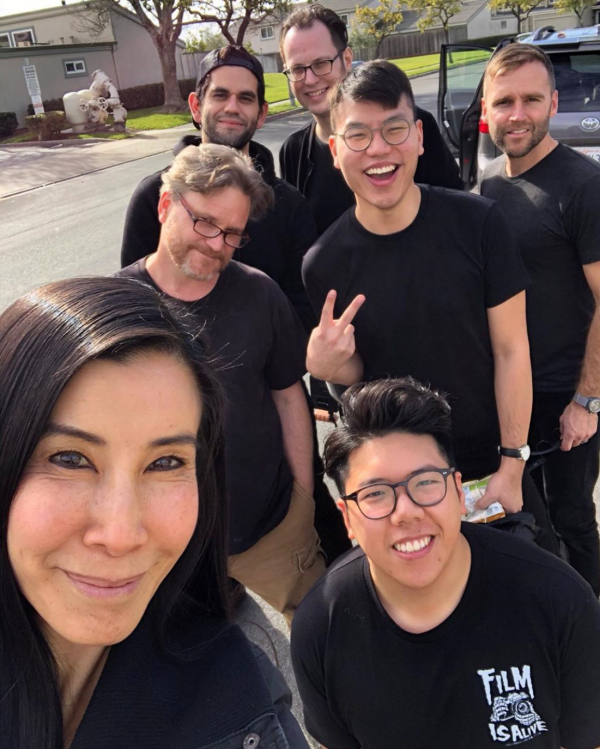Francis Poon: Career Pathways in TV Media
Written
06/19/2020

Francis Poon, MS '09, is a producer with Lisa Ling's "This is Life," which generally airs in the fall on CNN. The first six seasons are now streaming on HBO Max, and are available on iTunes.
Have you always wanted to go into TV media? What drew you to the field?
It’s funny you ask because I never, ever dreamt of working in TV. To this day, I see myself as a student, first and foremost, learning about the world around me. And somehow that journey gets documented on TV.
Curiosity really drives me. Through my work on my documentary series "This Is Life," I’ve been afforded this privilege to meet people from all facets of life. One moment I could be witnessing how opioids ravage families, another I could be learning how psychedelic therapy transforms lives. One minute I could be meeting a young Chinese immigrant trying to assimilate into this country, another I could be hearing why someone joined a militia to defend the American Way. I’ve sat face-to-face interviewing convicted murderers, and I’ve also met a former Al-Qaeda terrorist who wanted to bomb NYC.
Each of these experiences have taught me something valuable. And look, I don’t always agree with their perspectives, but I feel so lucky to be invited to hear a point-of-view that’s different than my own. And by listening, I walk away more educated, and more considerate of everyone around me.
It is my hope that when I share these experiences with an audience, we can all be more informed about life in all of its complexities, and hopefully feel more connected to one another’s humanity. We’re more alike than we are different, so it is important to listen.
What do you do in your current role?
I have two roles.
I’m a Co-Producer, which means I’m involved with helping produce a few episodes a season from beginning to end. That entails finding the stories and people to include in the show, planning the shoot, traveling on location and filming it, then crafting the material in the edit room into the show that you see.
I’m also the Post Manager of the series, so I manage the day-to-day post production process for the series. Everything from supervising our budgets, to hiring my post team, crafting our show opens, to managing the press and social media for our shows.
But, if I were to sum this all up — my job is to put out fires when they occur, so the production runs as smoothly as it possibly can. Sometimes it can mean negotiating access with an institution, sometimes it means getting my crew their morning Starbucks, sometimes it could mean making sure my post team has what they need to edit remotely because COVID hit. Everyday’s different.

How did you land in your current role? What was your path through the industry?
I studied journalism and education in college, and when I graduated, I knew I was passionate about using media to help people understand one another, but didn’t know how to go about it.
Around the same time, I remember seeing a trailer to Lisa’s show on Oprah’s network (called Our America), and found her compassionate journalistic approach so refreshing. So, I reached out to the production company (Part2), and asked if they had an internship. They actually turned me down, but when someone dropped out halfway through, they ended up hiring me. And, now, it’s six years later… I guess I must be doing something right.
What do you wish somebody had told you before you entered the field?
Network. I’m not great at it, but TV is a word-of-mouth business. It is about who you know. Learn about everything and everyone. Develop projects on the side. Make valuable connections. And don’t take no for an answer.
Anything else you’d like to add about working in TV?
It’s a miracle that any TV gets made? Ha! I’m only half kidding.
There is a lot of moving parts involved in getting a show made. But remember, it is a luxury to have this platform to speak to such a wide audience. Sometimes it blows my mind when I hear people in Japan, the UK, Australia commenting on our shows. That’s the reach of TV. So, use it for good. Help champion the rights, and encourage thoughtful conversations. Help people understand one another.
